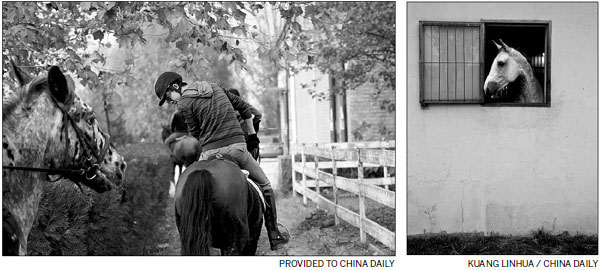Racing ahead
Updated: 2014-09-13 07:18
By Mei Ling Young(China Daily)
|
||||||||
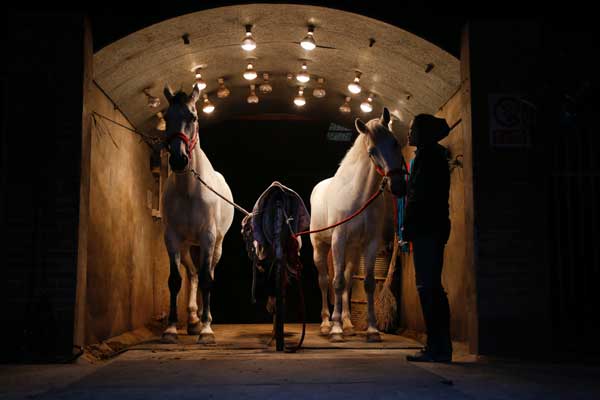 |
|
Horses relax their back muscles after a bath at an equestrian club in a Beijing suburb. Horse racing is becoming increasingly popular in China. [Photo by Kuang Linhua / China Daily] |
It's hugely popular in many countries, but in China the industry is still in its infancy. Mei Ling Young reports on efforts to develop the 'Sport of Kings'.
A group of well-heeled mavericks from China is poised to take the global racing world by storm. Led by Teo Ah Khing, the Malaysian-Chinese architect who designed the $1.6 billion Meydan Racecourse in Dubai, the China Horse Club shot from obscurity to worldwide fame in June when it won the coveted Epsom Derby with the prize thoroughbred, named Australia.
A combination of audacity, industry and acumen has won the support of key figures in the British racing establishment, including John Warren, bloodstock adviser to Queen Elizabeth II, and Coolmore Stud, Ireland's most successful stud farm.
|
From left: Horses and riders at an equestrian club in Beijing; a horse rests in a stable at the club. |
China has no shortage of equestrian clubs. In 2010, there were an estimated 500 professional clubs, up from only 100 in 2008, according to figures collated by the China (Shanghai) International Horse Fair.
And with the world's highest concentration of billionaires, China doesn't want for financing, either. "What it lacks is know-how," Teo says.
"You can't just buy horses like Australia. You have to develop them, and that is why the breeding cycle is so fascinating - it's an intellectual tease. You can throw as much money and expertise at it as you like, but at the end of the day, it's the horse that has the last word. You can only improve your chances by tweaking the circumstances," Warren says.
Horse racing is an industry whose total economic impact in the UK alone was valued at 3.45 billion pounds ($5.59 billion) in 2013 by the British Horse Racing Authority. Worldwide, the rearing and racing of thoroughbreds has spawned a complex - and lucrative - economy of knowledge and expertise.
But China's underdeveloped infrastructure and regulatory framework have thus far excluded it from meaningful participation and representation on the international racing circuit.
For example, standard-sized horse trailers are forbidden on expressways, and the country has just one Equine Disease Free Zone (Conghua City of Guangdong province), meaning that horses imported for international meetings are unlikely to be reaccepted by their home countries.
Teo says it is the ambition of the China Horse Club to change this: "We are in the business of starting an industry, not just a club."
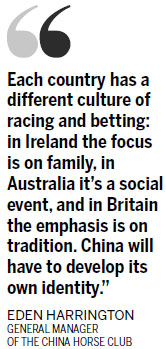
Pedigree is paramount among thoroughbreds, with the offspring of successful racehorses commanding astronomical prices. According to Fu Peipei, the CHC's Customer Relationship Manager, "Most people in China think the income comes from betting, but for horse owners, the real money comes from breeding."
An indigenous thoroughbred nursery industry is vital to a self-sustaining horseracing industry. For China to compete at an international level, an initial investment in high-quality bloodstock is needed, and the right training.
Fu says that in China some horse buyers don't care about how much they spend. "They may fly overseas several times to visit stables and spend a huge amount on buying good horses, only to keep them for show and not train them. For this reason some overseas stables are hesitant about selling to Chinese buyers," said Fu.
Teo adds that in recent years his team has seen more Chinese at the yearling auctions, but they rarely go for high-value horses, they just wait for the rejects. Chinese buyers tend to buy horses in number, but low quality will be perpetuated down the generations, he said.
Thus, a key part of the CHC's mission is to educate its members. Prospective owners can become minor shareholders before graduating to a full purchase.
Eden Harrington, general manager, says that the club's horses are carefully selected so that "members just dipping their toes into the racing world have a good experience" with healthy, proven thoroughbreds.
So far, the CHC is the only club in China to race domestically and abroad. It has 39 horses in China running domestic races. In addition, it also has horses in five other jurisdictions around the world: Australia, the US, France, Ireland and Singapore. Each is a premium racing location, within reach of other premium racing locations, which enables easy transport, the club says.
While CHC resources and aims are expansive, its top-tier membership is limited to just 2,000.
"With horses, it's a worldwide commodity that we're dealing in that is universally coveted, and it's not just an exciting sport but also a great connector of people," Warren says.
Like the Hong Kong Jockey Club, the CHC pitches itself as a premium lifestyle club with "all the bells and whistles", including overseas retreats in Switzerland and Australia.
An important breakthrough for the Club was its hosting of the China Equine Cultural Festival in September in 2013 in Hohhot, the capital of the Inner Mongolia autonomous region.
"We brought in the skill set: stewards from three different countries, 12 jockeys from six different countries, trainers, gate crews, officials. We pulled together a United Nations from other jurisdictions who were delighted to participate," Harrington says.
Critically, the CECF was the first race meeting in China to be endorsed by the all-important International Federation of Horseracing Authorities.
Together with the governing body of racing in France, the CHC drew up a white paper that covered the rules of racing, from medical tests to horse registration. "All our members and riders have to abide by them. This is our way of disciplining them and policing them. Anytime we share with government authorities, we send them our white paper to reassure them," Harrington says.
The festival was held in Inner Mongolia, a place steeped in equine culture. Its grassy plains are also potential breeding grounds for thoroughbreds. For the last two years, the CHC has sponsored six students from the region to study at stud farms overseas.
The first year, they went to Coolmore Stud in Ireland; the second, to France to train under the world's leading female horse trainer, Christiane "Criquette" Head.
"These people don't normally take students. But we wanted them to experience and understand the full breeding cycle, from calving (mating) to delivery, so they could bring this knowledge back home. We're investing in the talent of China," Teo says.
Some say that racing in China cannot flourish without the legalization of gambling. After all, betting is one of the few means by which the public can relate to the "Sport of Kings".
But Harrington disagrees. He says there is a distinct overreliance on the betting industry around the world, and China has a good opportunity to learn some of the positives and negatives from established jurisdictions.
"Each country has a different culture of racing and betting: in Ireland the focus is on family, in Australia it's a social event, and in Britain the emphasis is on tradition. China will have to develop its own identity," Harrington says.
He hopes that horses, jockeys and owners will eventually become national icons - personifications of the Chinese Dream.
Like other luxury industries, racing generates plenty of tax revenue and employment, so it merits government support. In this respect, China can learn a lot from the UK, Warren says.
He adds in the UK it is an industry providing 100,000 people with a job. Rearing horses contributes positively to the environment through the cultivation of grassland and hedgerows. In England last year, the Exchequer took in 275 million pounds from the trade in bloodstock, including training, export and private sales.
"It's an important part of the fabric of this country's economy, as in most racing nations," Warren says.
In five years' time, the CHC intends to catapult China to the forefront of the international racing scene.
To some, this might sound a tad ambitious, but Warren says the goal is possible because he believes Teo has the ability to achieve it.
"Because he built Meydan in a country that completely lacked the infrastructure, Mr Teo has a good grasp of how success can occur in a literal and figurative desert. He continues to create a fantastic, legitimate organization that hopefully gives confidence to Chinese people," Warren says.
(China Daily 09/13/2014 page14)
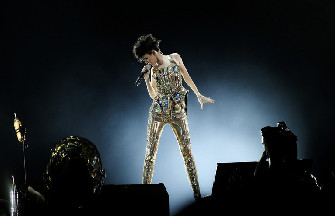
 Star Stefanie Sun holds concert in Beijing
Star Stefanie Sun holds concert in Beijing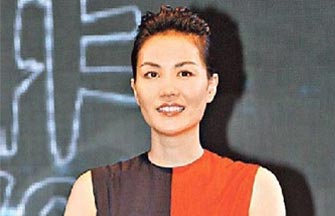
 Faye Wong's manager refutes star's drug rumors
Faye Wong's manager refutes star's drug rumors
 Lu Yi and daughter Bei Er pose for street snaps
Lu Yi and daughter Bei Er pose for street snaps
 Photoshoots of actress Li Xiaomeng
Photoshoots of actress Li Xiaomeng
 Council of Fashion Designers of America Awards
Council of Fashion Designers of America Awards
 Fan Bingbing, first Chinese actress in Barbie Hall of Fame
Fan Bingbing, first Chinese actress in Barbie Hall of Fame
 Awarding ceremony of 2014 hito Pop Music held in Taipei
Awarding ceremony of 2014 hito Pop Music held in Taipei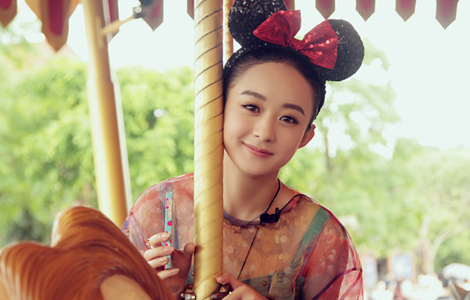
 Zhao Liying's photo shoot for Children's Day
Zhao Liying's photo shoot for Children's Day
Most Viewed
Editor's Picks

|

|

|

|

|

|
Today's Top News
Chinese president arrives in Maldives for state visit
US tourist in DPRK gets 6 years of hard labor
China, Central Asia unveil new energy cooperation
Alibaba roadshow bodes well for record-breaking IPO
Chinese plant joins US firm in fuel ingredient production
CITIC braces for legal battle in HK
Xi calls for three-way economic corridor
Paulson, Rudd tackle China's future
US Weekly

|

|
